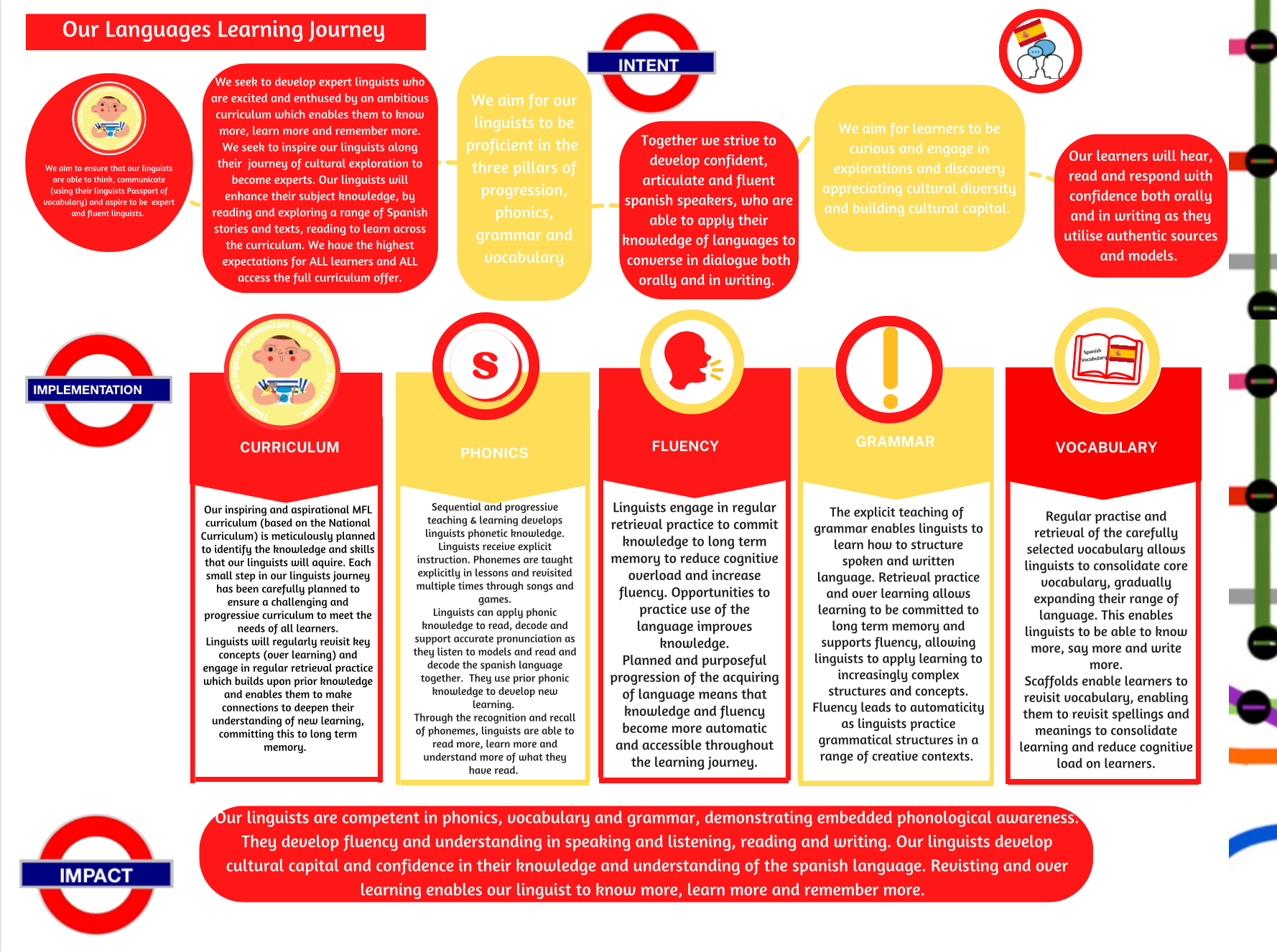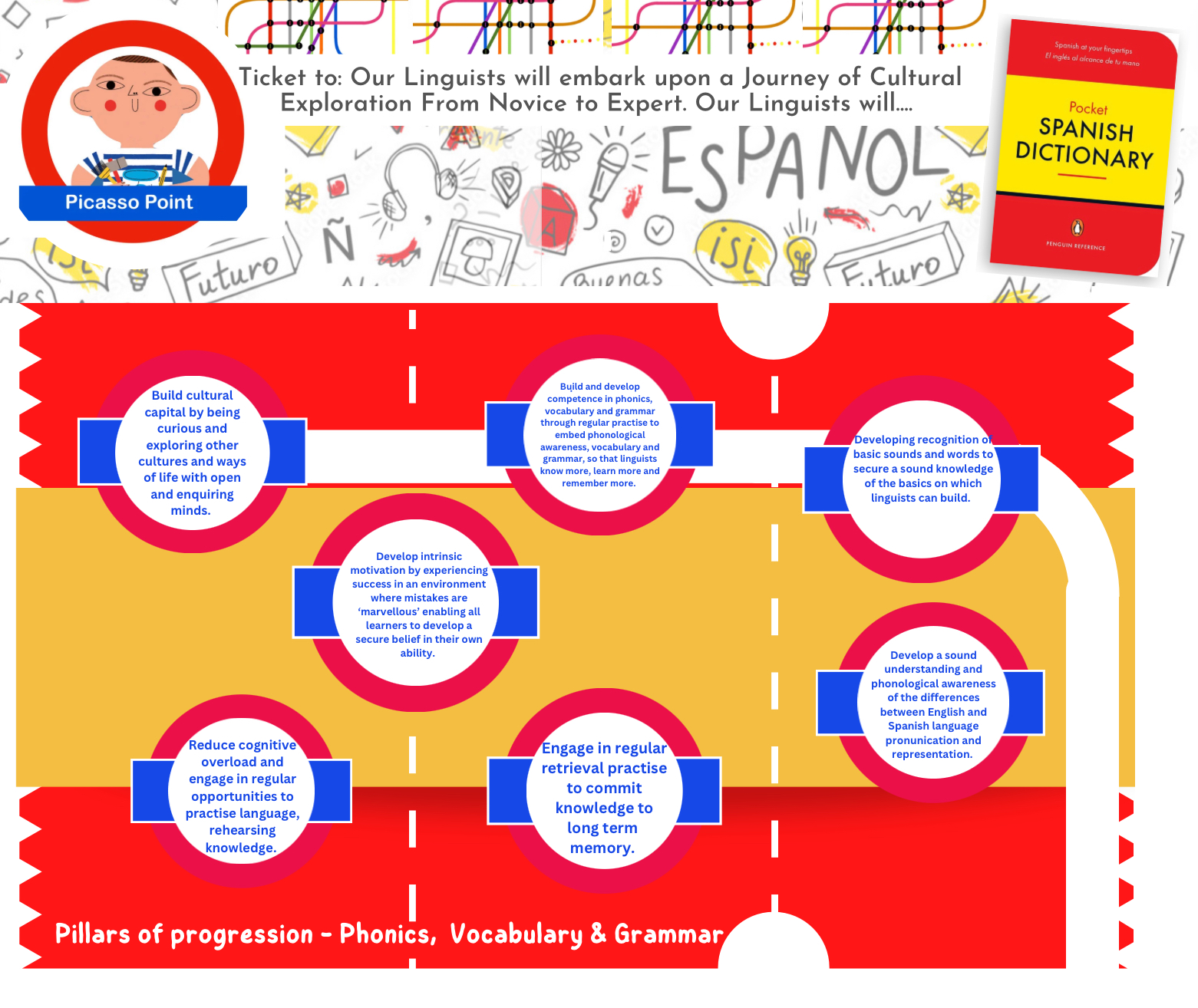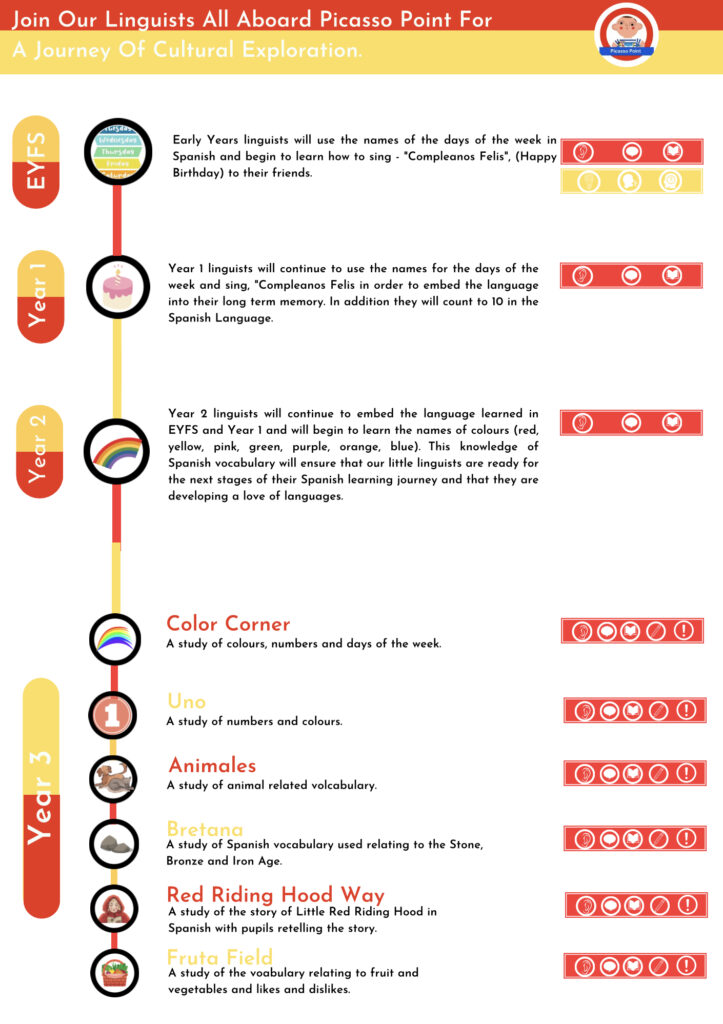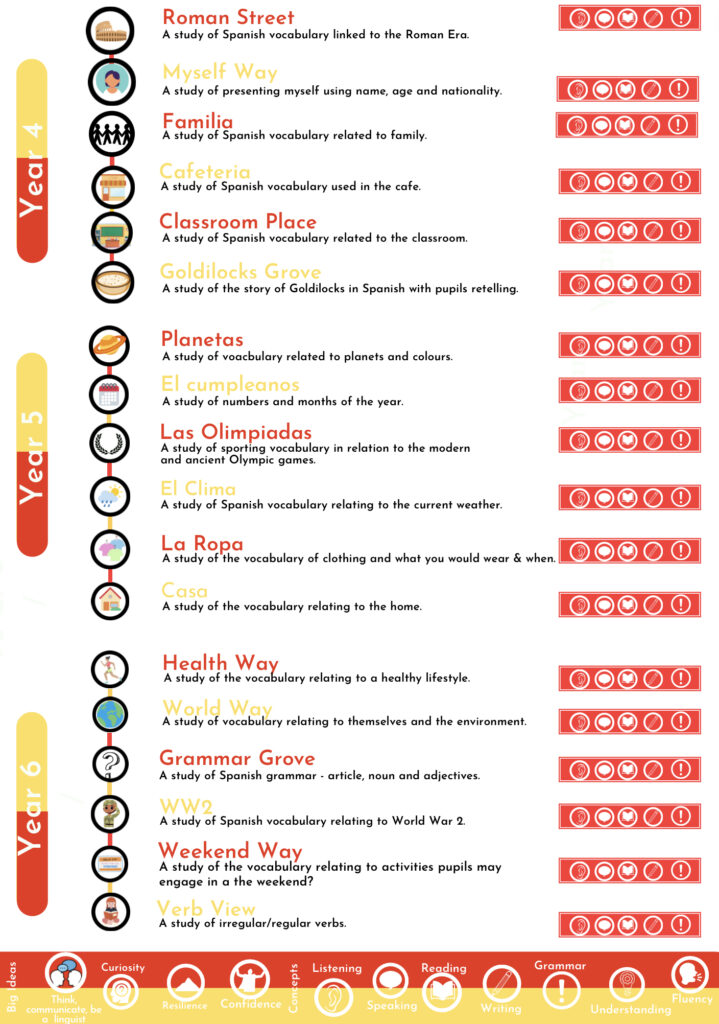Modern Foreign Language – Spanish
At Park Hall Academy it is our intent that all key stage 2 children will have been taught the skills to communicate at a basic knowledge in one Modern Foreign Language (Spanish) and be able to transfer these skills to other languages as they encounter them. Learning a language not only equips children with the knowledge and cultural capital to succeed in life, it also encourages them to appreciate and celebrate difference. As the world becomes smaller, it becomes more important to be able to communicate with people of other cultures and skills.
Our Curriculum Offer:
Our learners will become linguists through high quality learning & teaching. The curriculum is carefully planned using ‘Language Angels’ – a primary foreign language teaching programme is in line with the recommendations of the National Curriculum and the requirements outlined in the Department for Education Languages Programme of Study for Key Stage 2.
Our teaching approach is designed to motivate, captivate and interest learners from the first moment through varied learning activities and styles. Lessons are often cross-curricular enabling learners to identify links with topics studied across other areas of the curriculum – assisting learners in making connections and committing learning to their long term memory. Our linguists have opportunities to learn and perform songs and raps as well as participate in interactive games to further consolidate their learning whilst remaining engaged.
Learners are supported to develop and demonstrate substantial progress in the five key language skills necessary for learning (speaking, listening, reading, writing and grammar). We aim to ensure that pupils of all abilities are able to develop solid foundations in these key language skills and are prepared for the next stage of their language learning journey. This is achieved through careful consideration of the three pillars of progression (phonics, vocabulary and grammar) when planning language lessons.
It is important for children to study a language as it opens their minds; opens doors of opportunity; and helps them to develop a deep cultural awareness of the heritage of other countries. We believe that children should be passionate, curious and confident about their own foreign learning language abilities when they finish the primary school phase of their education, and that they can leave us with a strong base for future language studies.
Our intent, implementation and impact.

Modern Foreign Language – Spanish
At Park Hall Academy it is our intent that all key stage 2 children will have been taught the skills to communicate at a basic knowledge in one Modern Foreign Language (Spanish) and be able to transfer these skills to other languages as they encounter them. Learning a language not only equips children with the knowledge and cultural capital to succeed in life, it also encourages them to appreciate and celebrate difference. As the world becomes smaller, it becomes more important to be able to communicate with people of other cultures and skills.
Our linguists ticket

Our learning journey


